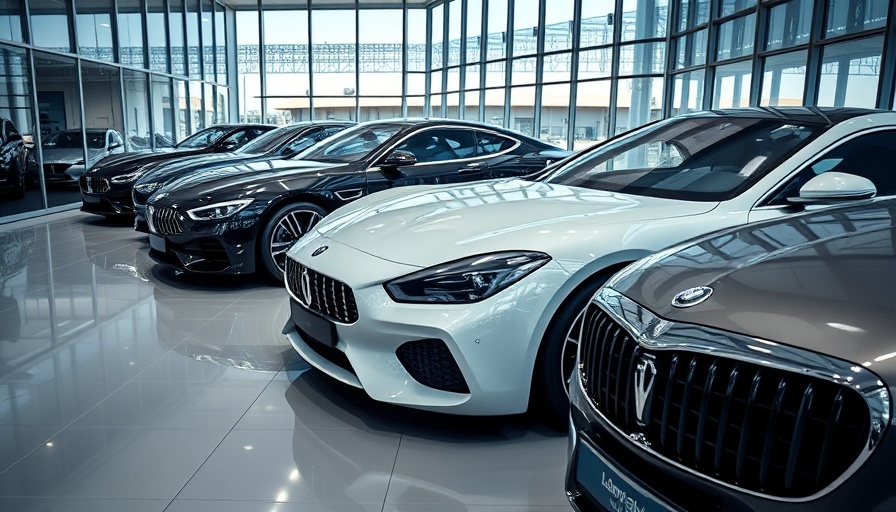
The Impact of Trump's Trade War on Luxury Auto Brands
In an era where luxury brands are considered benchmarks of class and desirability, a silent yet significant upheaval is unfolding within the luxury automobile segment, primarily influenced by the ongoing trade tensions instigated by the Trump administration. This isn't just politics; it's impacting the choices of the affluent consumer where upscale brands are often first to feel the weight of tariffs and trade issues, forcing them to rethink strategies.
What Went Wrong: The Cost of Tariffs
Trade tariffs have sent shockwaves through the luxury automotive sector, where brands like BMW, Mercedes-Benz, and Audi are experiencing increased production costs. These tariffs typically apply to imported parts and vehicles, leading companies to face uncomfortable decisions about passing costs to consumers or absorbing them, like an unwelcomed but necessary price hike.
Shifts in Consumer Behavior Amid Trade Concerns
The consequences of these shifts have not only altered pricing strategies but also impacted buyer behavior. Wealthy consumers, often perceived as insulated from economic fluctuations, are driven by perceptions of value. Rising vehicle prices amid tariffs can shift preferences towards domestic brands or models with better value propositions, thus reshaping brand loyalty in unexpected ways.
Emerging Technologies as a Strategic Response
In the wake of trade pressures, many luxury automakers are leaning towards innovative technologies—from electric vehicles (EVs) to autonomous driving systems—to captivate consumers and regain market share. This pivot reflects a significant trend in the tech landscape where automakers blend luxury with cutting-edge technological advancements. The need to differentiate in a congested market has never been more crucial.
Looking Ahead: Recovery and Future Predictions
Looking forward, the path for luxury car brands is both challenging and ripe with opportunity. As companies adapt to these new economic realities, the focus will likely shift to fostering loyalty through superior customer experiences and ensuring that products meet the expectations of a tech-savvy clientele. The integration of advanced shipbuilding technologies and resilient supply chains could play a pivotal role in navigating through these changes effectively.
Conclusion: The Luxury Auto Market's New Normal
Ultimately, Trump's trade war presents luxury auto manufacturers with a dual challenge of overcoming escalating tariffs while propelling themselves into the future with innovations that align with changing consumer expectations. Brands that can effectively meld advanced technology with affordable luxury are set to thrive in a marketplace that demands both sophistication and value.
 Add Row
Add Row  Add
Add 




Write A Comment